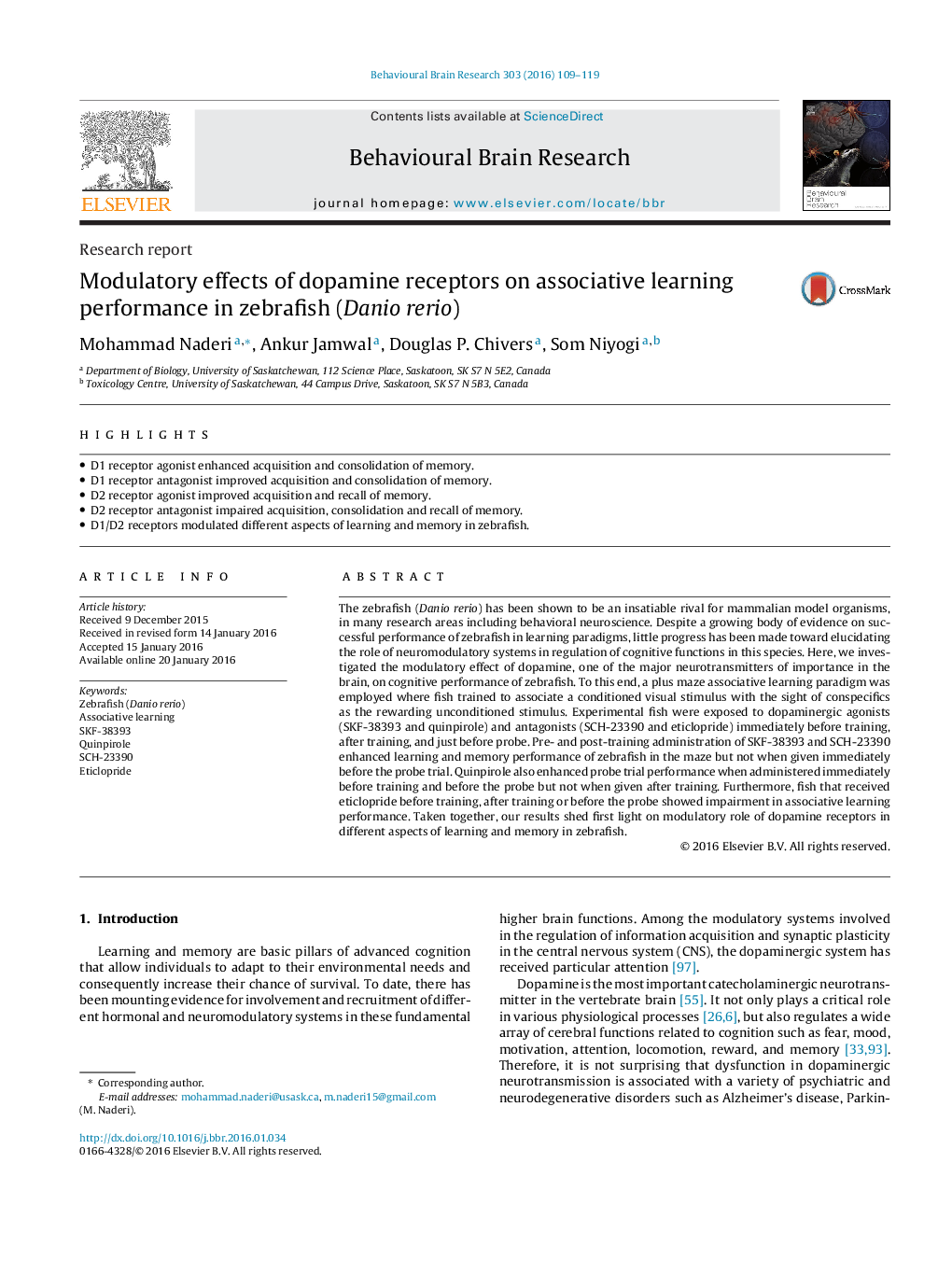| Article ID | Journal | Published Year | Pages | File Type |
|---|---|---|---|---|
| 4312232 | Behavioural Brain Research | 2016 | 11 Pages |
•D1 receptor agonist enhanced acquisition and consolidation of memory.•D1 receptor antagonist improved acquisition and consolidation of memory.•D2 receptor agonist improved acquisition and recall of memory.•D2 receptor antagonist impaired acquisition, consolidation and recall of memory.•D1/D2 receptors modulated different aspects of learning and memory in zebrafish.
The zebrafish (Danio rerio) has been shown to be an insatiable rival for mammalian model organisms, in many research areas including behavioral neuroscience. Despite a growing body of evidence on successful performance of zebrafish in learning paradigms, little progress has been made toward elucidating the role of neuromodulatory systems in regulation of cognitive functions in this species. Here, we investigated the modulatory effect of dopamine, one of the major neurotransmitters of importance in the brain, on cognitive performance of zebrafish. To this end, a plus maze associative learning paradigm was employed where fish trained to associate a conditioned visual stimulus with the sight of conspecifics as the rewarding unconditioned stimulus. Experimental fish were exposed to dopaminergic agonists (SKF-38393 and quinpirole) and antagonists (SCH-23390 and eticlopride) immediately before training, after training, and just before probe. Pre- and post-training administration of SKF-38393 and SCH-23390 enhanced learning and memory performance of zebrafish in the maze but not when given immediately before the probe trial. Quinpirole also enhanced probe trial performance when administered immediately before training and before the probe but not when given after training. Furthermore, fish that received eticlopride before training, after training or before the probe showed impairment in associative learning performance. Taken together, our results shed first light on modulatory role of dopamine receptors in different aspects of learning and memory in zebrafish.
